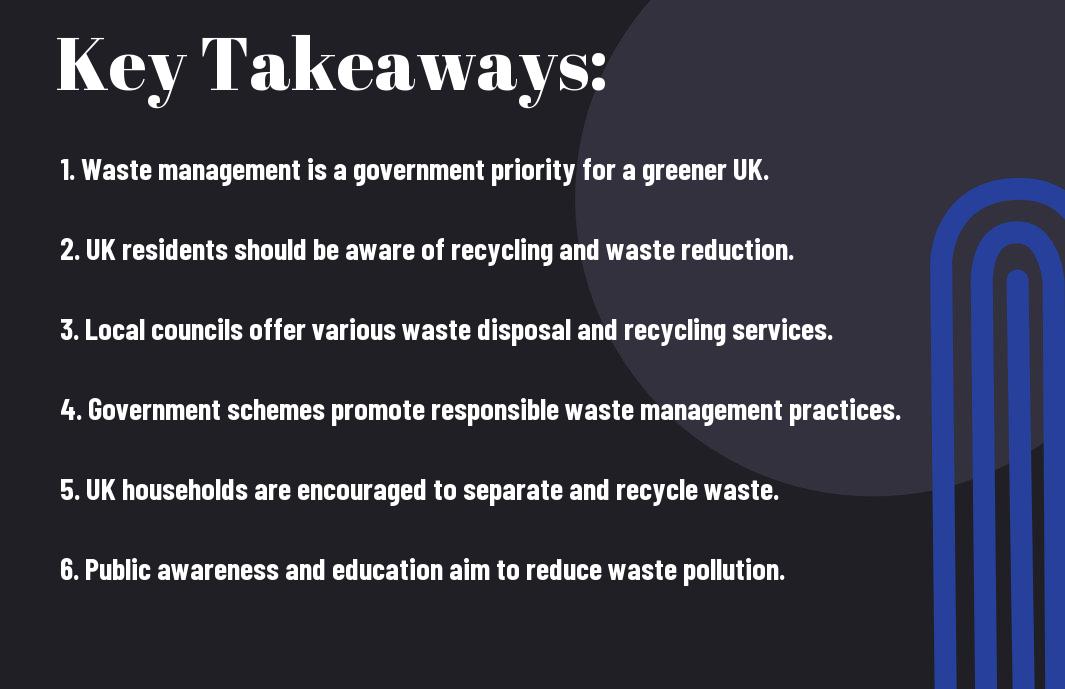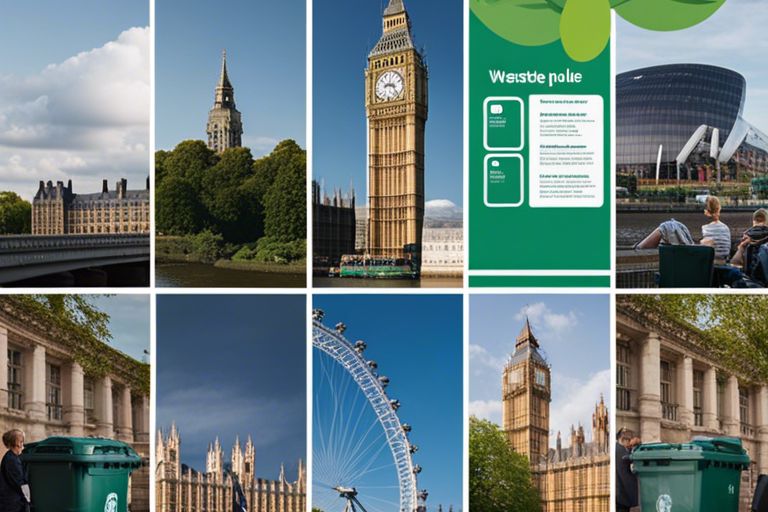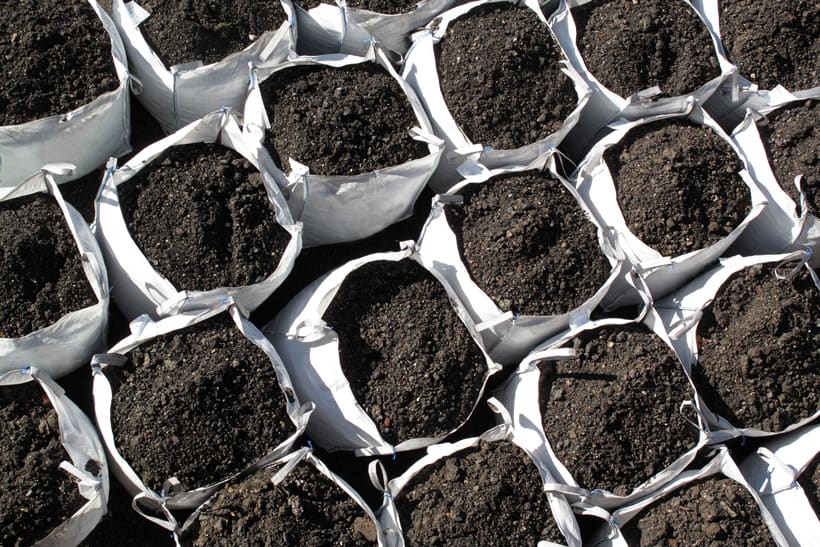Exacerbating waste management issues in the UK have prompted the government to take decisive action in addressing the growing problem. With landfill capacities dwindling and environmental concerns mounting, it is imperative for UK residents to be aware of the recent initiatives that have been implemented. From ambitious recycling targets to penalties for improper waste disposal, these government actions aim to radically transform the way waste is managed in the country. This informative blog post will provide an overview of the most crucial government initiatives on waste management and outline their implications for UK residents, as well as how individuals can contribute to these efforts.
Key Takeaways:
- Recycling and Waste Reduction: The UK government has launched various initiatives to promote recycling and waste reduction among UK residents. It is important for residents to stay updated on these initiatives to contribute to a sustainable environment.
- Food Waste Management: The government has also taken steps to tackle food waste and encourages residents to reduce, reuse, and recycle food waste. UK residents should be aware of these initiatives to play their part in minimising food waste.
- Policies and Regulations: It is crucial for UK residents to be informed about the policies and regulations related to waste management in order to comply with the laws and contribute towards a cleaner and greener environment.

Legislative Framework
The legislative framework for waste management in the UK is an essential aspect of ensuring proper management and disposal of waste. It sets out the laws and regulations that govern waste management activities, including collection, transportation, treatment, and disposal.
Key Statutes Governing Waste Management
The Environmental Protection Act 1990 sets out the main framework for the regulation of waste management in the UK. It covers the duty of care for waste and provides powers to control the disposal of controlled waste. The Waste (England and Wales) Regulations 2011 and the Waste (Wales) Regulations 2011 also play a crucial role in implementing the waste management policies and ensuring compliance with the European Union’s waste management directives.
Regulatory Bodies and Enforcement
The Environment Agency and the Scottish Environment Protection Agency are the primary regulatory bodies responsible for overseeing and enforcing waste management regulations in England and Wales, and Scotland respectively. They monitor and control the handling, storage, transport, and disposal of waste to prevent pollution and harm to human health and the environment. Their enforcement actions ensure that businesses and individuals comply with the legislation and take appropriate measures to manage their waste effectively.
These regulatory bodies have the authority to issue warnings, fines, and even prosecution for non-compliance with waste management regulations. They also provide guidance and support to help businesses and individuals understand and meet their waste management obligations, contributing to a more sustainable and environmentally friendly waste management system in the UK.
National Waste Management Strategies
The UK government has implemented several waste management strategies to address the growing concerns of waste production and its impact on the environment. These strategies aim to reduce the amount of waste generated, increase recycling rates, and promote sustainable waste management practices.
To learn more about the current waste prevention programme for England, you can take part in the Consultation on the Waste Prevention Programme for England.
Waste Prevention Programmes
The government has introduced various waste prevention programmes to educate and encourage UK residents to minimise waste generation. These programmes focus on raising awareness about the importance of reducing, reusing, and recycling, as well as promoting sustainable consumption habits.
Through these initiatives, the government aims to change societal attitudes towards waste and empower individuals to make environmentally conscious choices in their daily lives.
Recycling and Composting Initiatives
In addition to waste prevention efforts, the UK government has implemented recycling and composting initiatives to divert recyclable and organic materials from landfills. These initiatives include the expansion of recycling infrastructure, the promotion of segregated waste collection, and the support of composting at a local level.
The government has also collaborated with local authorities and businesses to improve recycling rates and encourage the use of sustainable packaging to reduce the environmental impact of waste.
Furthermore, these initiatives aim to reduce greenhouse gas emissions associated with landfill waste and contribute to the circular economy by promoting the use of recycled materials in the manufacturing sector.
Local Community Involvement
Local community involvement is crucial in the successful implementation of waste management initiatives. The active participation of residents in their local areas can significantly impact the effectiveness of waste management strategies and contribute to a cleaner and healthier environment for all.
Community-Based Projects
Community-based projects play a vital role in waste management. These projects involve local residents coming together to initiate and implement waste reduction, recycling, and clean-up efforts in their neighbourhoods. By participating in such projects, residents can directly contribute to reducing the amount of waste generated and improving the overall cleanliness of their communities. These initiatives also foster a sense of community pride and responsibility for the environment, leading to long-term sustainable waste management practices.
Educational Outreach and Public Participation
Educational outreach and public participation are key components of government initiatives on waste management. Through educational programmes and public engagement activities, residents are informed about the environmental impact of improper waste disposal and the importance of responsible waste management. This empowers them to make informed decisions and take necessary actions to reduce, reuse, and recycle waste, thereby contributing to a more sustainable and eco-friendly society.
In addition to raising awareness, educational outreach and public participation also involve seeking input and feedback from residents on waste management policies and practices. This collaborative approach ensures that the needs and concerns of the community are considered, resulting in more effective and well-received waste management initiatives.

Innovations and Technologies in Waste Management
As the world grapples with the growing issue of waste management, the UK has been at the forefront of embracing innovations and technologies to address this pressing concern. From advancements in waste treatment and processing to digitalisation and smart waste solutions, the country has been actively exploring new approaches to handle and reduce the impact of waste on the environment.
Advances in Waste Treatment and Processing
The UK has made significant strides in the development of advanced waste treatment and processing technologies. This includes the implementation of state-of-the-art sorting and recycling facilities, as well as the adoption of cutting-edge methods for the treatment of organic waste. These advancements have not only improved the efficiency of waste management processes but have also contributed to the reduction of harmful emissions and the generation of renewable energy from waste.
Digitalisation and Smart Waste Solutions
Digitalisation and smart waste solutions have revolutionised the way waste management is approached in the UK. Through the use of advanced data analytics, sensor technologies, and innovative waste management software, local authorities and waste management companies are able to monitor and optimise waste collection, recycling operations, and landfill management. This level of digitalisation has paved the way for more sustainable and environmentally friendly waste management practices.
Furthermore, the integration of smart waste solutions has enabled real-time tracking and monitoring of waste generation, collection, and disposal. This has not only helped in streamlining waste management processes but has also contributed to the reduction of operational costs and the minimisation of environmental impact. The use of digitalisation and smart waste solutions has proven to be instrumental in enhancing the overall efficiency and effectiveness of waste management practices in the UK.

Government Initiatives on Waste Management – What UK Residents Should Know
In conclusion, it is crucial for UK residents to stay informed about the various government initiatives on waste management. The government is actively working towards reducing the environmental impact of waste and has implemented several strategies and policies to achieve this goal. By staying informed, residents can understand their role in waste management and contribute towards a cleaner and more sustainable environment. It is important for residents to adhere to waste disposal guidelines, make use of recycling facilities, and support local initiatives aimed at reducing waste. Ultimately, by working together with the government, UK residents can help to create a greener and healthier environment for future generations.
FAQ
Q: What are the main government initiatives on waste management in the UK?
A: The UK government has introduced initiatives such as the Waste Strategy for England, the Resource and Waste Strategy for Scotland, and the Towards Zero Waste Strategy for Wales to promote sustainable waste management practices.
Q: How does the UK government encourage recycling and waste reduction?
A: The government encourages recycling and waste reduction through initiatives such as the Extended Producer Responsibility (EPR) scheme, which places the responsibility on producers to manage the end-of-life disposal of their products.
Q: Are there any regulations in place for waste disposal in the UK?
A: Yes, the UK has regulations in place such as the Landfill Tax and the ban on certain types of waste from being sent to landfill, which aims to reduce the amount of waste going to landfill sites.
Q: What should UK residents know about proper waste segregation?
A: UK residents should be aware of the importance of segregating waste into different categories such as general waste, recycling, and organic waste to facilitate proper waste management and recycling processes.
Q: How can UK residents get involved in government initiatives on waste management?
A: UK residents can get involved in government initiatives on waste management by participating in local recycling programmes, supporting community clean-up events, and advocating for sustainable waste management practices in their communities.







